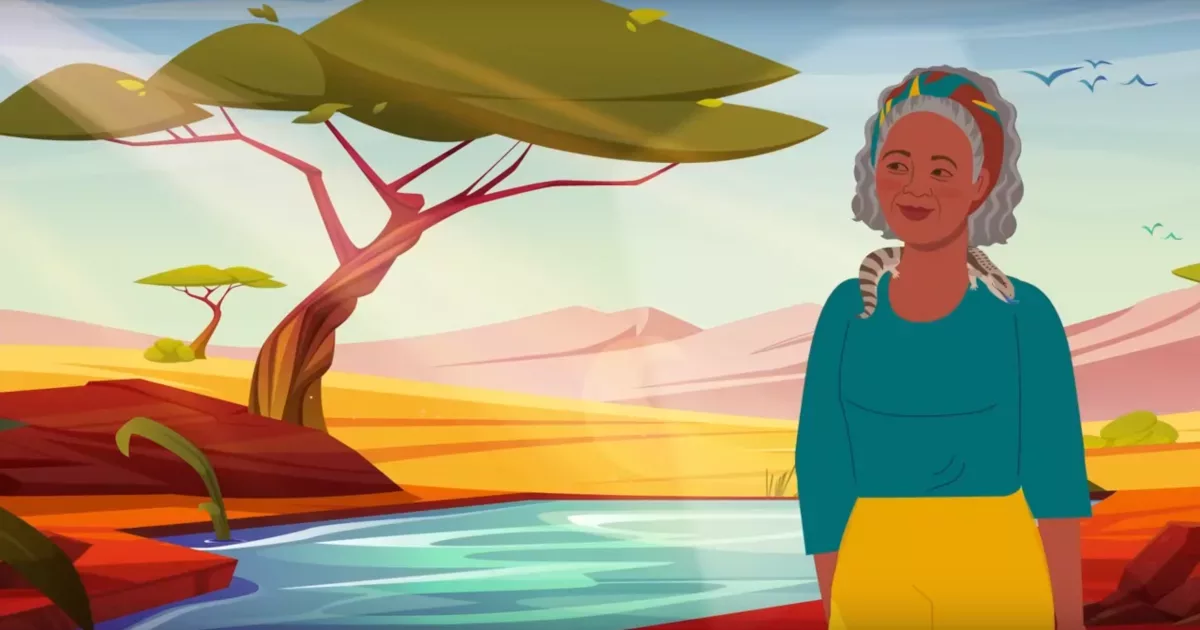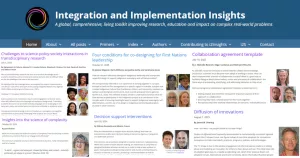The Key to Solving Climate Change May Lie in Indigenous Wisdom
In the Kimberley region of Western Australia, Indigenous First Australians are partnering with researchers to pioneer environmental planning and management

The Martuwarra, named the Fitzroy River by European settlers, flows through the Kimberley region of Western Australia. For the Indigenous peoples, the River is not merely a geographical feature, but a living ancestral serpent being and the source of law, spirituality, and identity.
This deep connection between people and place is at the heart of recent research by Indigenous scholar, Professor Anne Poelina of the Nulungu Research Institute at the University of Notre Dame Australia. Poelina champions the position that Indigenous leadership, wisdom and governance are crucial in addressing climate change and achieving environmental and multi-species justice, providing the ability to include this ancient wisdom and practice towards a climate chance.
A long history of exploitation
Today, Yi-Martuwarra people showcase the Fitzroy River as Australian National and Aboriginal Cultural Heritage. However, it faces threats, of water extraction for agriculture and large-scale mining, including fracking. These plans, Poelina argues, continue a long history of exploitation, and ongoing invasive unjust development that has transformed a region of peace, harmony and balance into a situation of incremental ecocide and genocide.
Central to the Indigenous perspective on these issues is the concept of First Law. This law, passed down through generations, governs the relationship between people and Country. It is not merely a set of rules, but a holistic system that encompasses spirituality and sustainable management practices.
The Bookarrakarra philosophy
The researchers introduce the concept of Bookarrakarra, an Indigenous philosophy that calls for us to learn from history to plan for the future, but to enact these lessons now. This perspective challenges linear Western notions of time, offering a holistic view of environmental stewardship.
Yi-Martuwarra people believe that human and non-human beings have an equal right to life. Everything is in relationship as kin, as family. They see humans as part of nature, not separate from or dominant over it. This worldview recognizes the interconnectedness of living things and challenges the dominant Western paradigm of nature as an exploitable resource.
Relearning harmony
In response to the threats facing the Martuwarra, local Indigenous elders and young leaders from 9 nations have come together to form the Martuwarra Fitzroy River Council. Established in 2018, this alliance of Traditional Owners aims to maintain the legal, spiritual, cultural, and environmental stewardship of the region.
As the world grapples with climate change, the message from the Martuwarra and its people resonates far beyond the Kimberley. Our survival depends on relearning how to live in harmony with the natural world, guided by the wisdom of those who have maintained that connection for millennia.
Watch the video
Original Article Reference
Summary of the papers ‘People: ‘Just-Us for All’ – Indigenous wisdom for human and planetary well-being’ in Minority and Indigenous Trends, ‘Martuwarra Fitzroy River Watershed: One society, one river law’ in PLOS Water, and ‘Ancient wisdom dreaming a climate chance’ in Traditional knowledge and climate change: An environmental impact on landscape and communities.
Contact
For further information, you can connect with Prof. Anne Poelina at chair@martuwarrafitzroyriver.org or anne.poelina1@nd.edu.au
This article has first been published on SciTube
This work is licensed under a Creative Commons Attribution 4.0 International License
SUBSCRIBE TO OUR NEWSLETTER
To stay up to date with our projects and the development of the EHC
Read more articles

Gian Francesco Giudice: “Ethical responsibility is essential in fundamental research”
From hypothetical black holes to environmental impact studies, CERN navigates risk, transparency, and moral responsibility at the frontiers of human

Dealing with the complexity of society and environment
A global toolkit for tackling complex problems with more than 600 different methods Ever wish you had a free toolkit

The Moon & the Global South: Voices, Risks & Promise
Researchers warn that without inclusive governance, the Moon could become “a new arena for old patterns of exclusion” When rockets

Borko Furht: “AI shouldn’t be given much autonomy without maintaining accountability”
Beyond Superintelligence: The Real Challenges of Keeping Humans ‘In the Loop’ Borko Furht is a professor in the department of